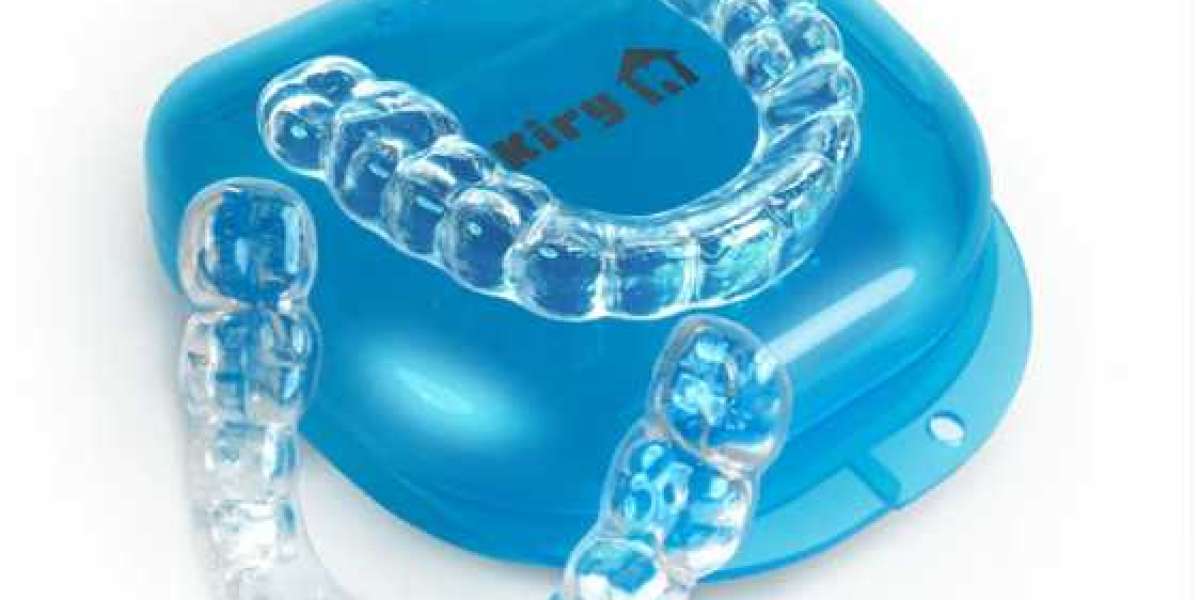Best Night Guard: A Comprehensive Guide to Protecting Your Teeth
Night guards, also known as dental guards or mouthguards, are an essential tool for those who grind their teeth (bruxism) or suffer from temporomandibular joint (TMJ) disorders. These conditions can cause long-term damage to your teeth, lead to jaw pain, headaches, and affect your overall well-being. If you're considering a night guard to protect your teeth, it’s essential to know what to look for and how to choose the best one for your needs.
In this comprehensive guide, we'll dive into the different types of night guards, their benefits, and tips on finding the best night guard to suit your lifestyle.
Understanding the Need for a Night Guard
Teeth grinding and clenching are common problems, especially during sleep. Many people are unaware of their condition until they experience its harmful effects. These can include:
- Worn-down teeth: Grinding can wear down your enamel, causing teeth to become more sensitive and vulnerable to cavities.
- Jaw pain and TMJ issues: Constant clenching can lead to tension in the jaw, causing TMJ disorders and chronic discomfort.
- Headaches: Many sufferers of bruxism also report frequent headaches due to the strain on their jaw muscles.
A night guard acts as a barrier between your upper and lower teeth, preventing damage and alleviating the symptoms associated with grinding and clenching.
Types of Night Guards
Night guards come in different styles and materials, offering various levels of protection and comfort. Here are the main types:
- Over-the-Counter (OTC) Night Guards: These are readily available at drugstores and are usually made of a thermoplastic material. You soften them by boiling and then bite into the mold to create a semi-custom fit. OTC guards are affordable but may not provide the best comfort or durability compared to custom options.
- Pros: Affordable, easy to find, immediate availability.
- Cons: Less comfortable, less durable, and may not fit perfectly.
- Custom-Fitted Night Guards: These are made by a dentist or dental lab, ensuring a perfect fit for your mouth. Your dentist will take an impression of your teeth, which is used to craft the night guard. Custom night guards offer superior comfort and effectiveness because they are tailored specifically for your dental structure.
- Pros: Perfect fit, more comfortable, durable, better protection.
- Cons: More expensive, requires a dental visit or online lab order.
- Hard vs. Soft Night Guards:
- Soft night guards are flexible and best for mild to moderate grinding. They are comfortable but may wear out faster.
- Hard night guards are made from durable acrylic material and are ideal for severe grinders. They provide excellent protection but may feel bulkier in your mouth.
- Dual Laminate Night Guards: These combine the best of both worlds, featuring a soft interior for comfort and a hard exterior for durability. They are suitable for moderate to severe grinders who want both protection and comfort.
- Pros: Comfortable, durable, offers strong protection.
- Cons: Can be more expensive.
What to Look for in the Best Night Guard
Choosing the best night guard depends on various factors, such as your specific dental needs, comfort preferences, and budget. Here’s what to consider when selecting the right one:
1. Comfort and Fit:
The best night guard should fit snugly without feeling too tight or bulky. A poorly fitting guard can be uncomfortable and may not provide adequate protection. Custom-fitted guards are generally the most comfortable, but some OTC options offer a decent fit as well.
2. Material:
The material of the night guard can affect both comfort and durability. Softer materials may be more comfortable but less durable, while harder materials provide longer-lasting protection but can feel more intrusive.
3. Durability:
If you grind your teeth severely, you’ll need a night guard that can withstand constant pressure. Hard or dual-laminate guards tend to be the most durable, making them suitable for heavy grinders.
4. Thickness:
Night guards come in various thicknesses, typically ranging from 1mm to 3mm. Thicker guards offer more protection but may feel bulkier. Thin guards are less obtrusive but may not last as long for heavy grinders.
5. Cost:
Custom-made night guards are more expensive than OTC options, but they last longer and offer better protection. If cost is a concern, consider weighing the long-term benefits of investing in a custom guard versus frequently replacing cheaper OTC guards.
6. Ease of Maintenance:
Night guards need to be cleaned regularly to prevent bacteria buildup. Some materials are easier to clean than others, so it’s important to consider how much time you’re willing to spend on maintenance. Look for guards that are easy to clean with simple soap and water or specialized cleaning solutions.
Top Recommendations for Night Guards
Here are a few highly recommended night guards, each offering unique benefits:
1. Pro Teeth Guard:
This is a custom night guard created by a dental lab. They offer a range of guard options, from soft to hard, and even dual laminate guards. Pro Teeth Guard is known for its high-quality materials and durability, and customers can order a custom-fit guard online at a fraction of the price they’d pay at a dentist’s office.
- Best for: Severe grinders, those looking for a custom fit at a lower price point.
2. Dentek Professional Fit Night Guard:
This OTC guard is one of the top-rated boil-and-bite options. It offers a reasonable level of comfort and protection for mild to moderate grinders. It’s a great budget-friendly option if you need an immediate solution.
- Best for: Mild to moderate grinders on a budget.
3. Smile Brilliant Night Guard:
Smile Brilliant provides professional-grade custom-fitted guards at a more affordable price than dentist-provided guards. The online ordering process is simple, and the guards are crafted from durable, dentist-grade materials.
- Best for: People seeking long-term durability and comfort at a reasonable price.
4. SISU Mouthguards:
These mouthguards are super thin and designed for both sports and night-time grinding. Despite their slim profile, they provide solid protection, making them an excellent choice for people who dislike bulky guards.
- Best for: Those looking for a thin, protective option for mild grinding or combined use in sports.
How to Care for Your Night Guard
Proper care will extend the life of your night guard and ensure it remains effective. Here’s how to maintain it:
- Clean it daily: After each use, rinse your night guard with cold water and brush it gently with a toothbrush and non-abrasive toothpaste.
- Soak it occasionally: Use a dental cleaner or soak it in a solution of water and vinegar to disinfect.
- Store it properly: Keep your night guard in a protective case when not in use to prevent damage.
- Avoid hot water: Hot water can warp your guard, so always rinse and clean it with cold or lukewarm water.
Conclusion
Finding the best night guard involves understanding your grinding habits, knowing what type of guard suits your needs, and investing in one that offers the best balance between comfort, protection, and durability. While OTC guards can provide temporary relief, a custom-fitted night guard is often the best long-term solution for preventing damage and ensuring a good night's sleep. Take care of your night guard, and it will take care of your teeth!








